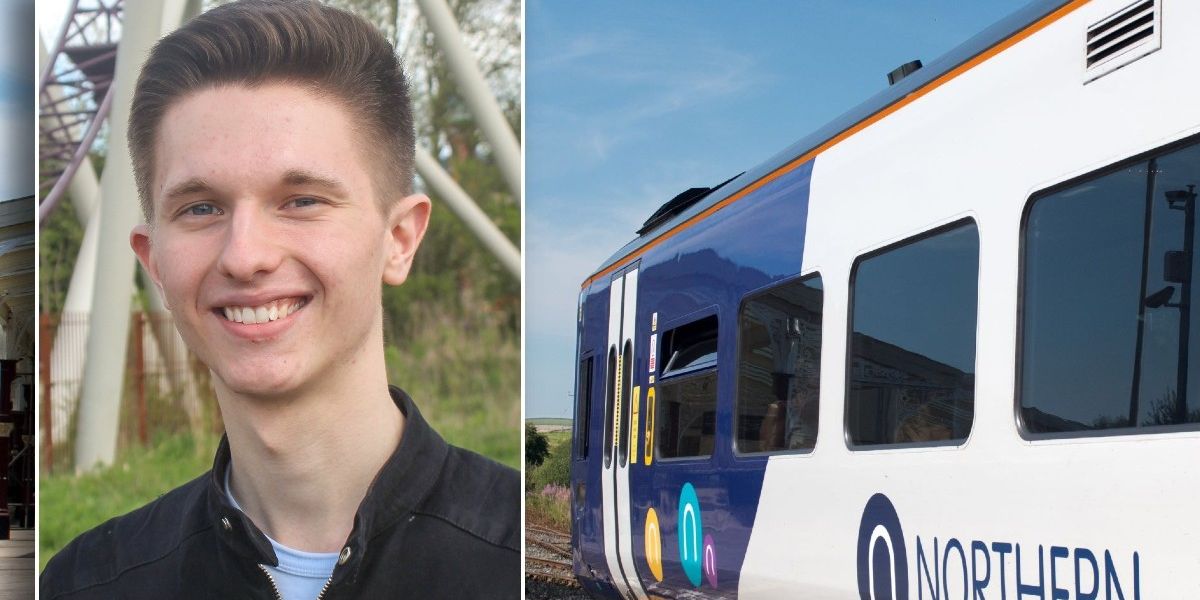The £1.90 Ticket Error: A Case of Overzealous Enforcement by Northern Rail
In a striking incident that has captured public attention, a 22-year-old man from Glossop, Sam Williamson, is facing potential prosecution from Northern Rail over a seemingly minor ticketing error. The case raises significant questions about the fairness and proportionality of the rail company’s enforcement practices, particularly when it comes to innocent mistakes made by passengers.
The Incident: A Simple Mistake
Williamson was traveling from Broadbottom to Manchester en route to London for his driving theory test when he inadvertently used his 16-25 railcard outside of its valid hours. The railcard, which offers discounts to young travelers, has specific terms and conditions that restrict its use during peak hours. Unbeknownst to Williamson, using the railcard for a fare below £12 between 4 AM and 10 AM on weekdays is prohibited, except during the months of July and August.
Upon being informed by the conductor that his ticket was invalid, Williamson expressed his willingness to rectify the situation. "I said, ‘I am really sorry, this is my mistake, can I buy a new ticket?’" he recounted. Unfortunately, the conductor informed him that he could neither purchase a new ticket nor pay a penalty on the spot. Instead, a travel incident report was filed, setting the stage for potential legal action.
The Aftermath: A Letter of Threat
Upon returning home, Williamson was met with a letter from Northern Rail, threatening prosecution for the £1.90 underpayment. The letter emphasized the company’s stance that all passengers have a duty to purchase a valid ticket before boarding. Williamson described the experience as "quite stressful," feeling that the prospect of prosecution for such a minor infraction was unreasonable.
He expressed disbelief that an innocent mistake could lead to a punishment that might involve hundreds of pounds in fines and a criminal record. "Why would anyone get the train if this is how they will treat you?" he questioned, highlighting the chilling effect such enforcement practices could have on potential rail users.
Public Reaction: Calls for Clarity and Fairness
The incident has sparked widespread discussion on social media, with Williamson taking to the platform X (formerly Twitter) to share his experience. His post quickly garnered attention, prompting calls for greater clarity regarding the railcard’s terms and conditions. Williamson criticized the Northern Rail app for its lack of transparency, arguing that it should be made clear that "an anytime ticket is not any time with a railcard."
Labour MP Gill Furniss also weighed in on the situation, expressing her concern over Northern Rail’s approach to enforcing ticket regulations. She stated, "I am deeply concerned by reports of Northern Rail fining and prosecuting passengers for innocent mistakes when using their railcard at peak times." Furniss has since written to the Managing Director of Northern Rail to relay her concerns about the company’s practices.
Northern Rail’s Stance: Upholding Regulations
Despite the public outcry, Northern Rail has stood firm in its position. The company maintains that the "overwhelming majority" of passengers comply with ticket regulations and that enforcement is necessary to ensure fairness for all travelers. They have requested Williamson to provide a written explanation of the incident within two weeks, warning of potential legal proceedings if he fails to comply.
Conclusion: A Call for Change
This incident serves as a poignant reminder of the complexities surrounding public transportation regulations and the potential consequences of seemingly minor infractions. As Sam Williamson’s case unfolds, it raises critical questions about the need for clearer communication from rail companies regarding ticketing rules and the appropriateness of punitive measures for innocent mistakes.
In an age where public transport is essential for many, it is vital that companies like Northern Rail strike a balance between enforcing regulations and ensuring that passengers feel supported and understood. As Williamson aptly noted, the ambiguity surrounding railcard rules must be addressed to prevent similar situations from arising in the future. The public’s response to this case may very well influence how rail companies approach ticketing policies and customer service in the years to come.
